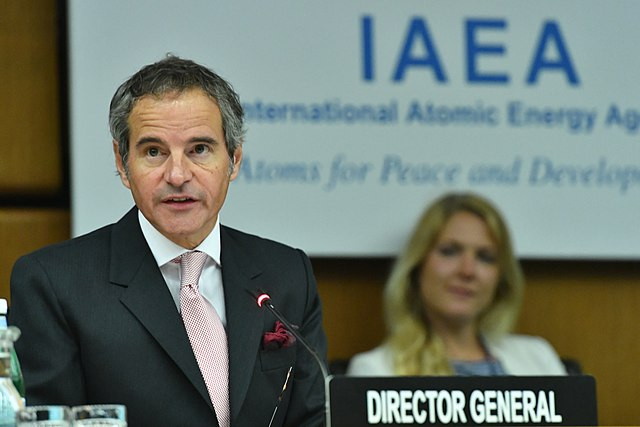As the conflict between Russia and Ukraine escalates, the head of the United Nations' nuclear watchdog has issued a stark warning about the growing risk of a nuclear disaster in Russia's Kursk region. Rafael Grossi, the Director General of the International Atomic Energy Agency (IAEA), called for "maximum restraint" from both sides to avoid what could be a catastrophic nuclear accident.
On Friday, Russia announced the deployment of additional troops and military hardware to the Kursk region, where Ukrainian forces have launched a rare and aggressive ground assault. This incursion represents one of the most significant escalations in the war, which has largely been confined to Ukrainian territory for over two years. The situation has raised alarms internationally, with the potential for serious radiological consequences if the conflict spills over into the area surrounding the Kursk Nuclear Power Plant (NPP).
"I would like to appeal to all sides to exercise maximum restraint in order to avoid a nuclear accident with the potential for serious radiological consequences," Grossi said in a statement released by the IAEA. He emphasized that the agency has been closely monitoring reports of military activities near the nuclear facility and is in ongoing communication with relevant authorities in both Russia and Ukraine.
The Kursk NPP, one of Russia's largest nuclear power stations, operates six reactor units, two of which are currently shut down, while two others are under construction. The remaining two units are fully operational. The proximity of the fighting to such a critical infrastructure has heightened concerns about the safety and security of the plant.
Grossi's warning comes amid reports that missile fragments, possibly from downed Ukrainian drones, were found near the Kursk plant. While there is no evidence that the facility itself has been directly targeted, the discovery has further fueled fears of an inadvertent nuclear incident.
In response to the Ukrainian offensive, Russia has implemented sweeping anti-terrorism measures in the Kursk, Bryansk, and Belgorod regions. These measures, announced by Moscow's anti-terrorism committee on Saturday, grant extensive powers to the security services, including the ability to relocate residents, control communications, and impose curfews. Russian state nuclear energy company Rosatom reported that the Kursk plant was operating normally despite the nearby military activity.
The conflict has already resulted in significant casualties and fierce fighting within the Kursk region. According to the U.S.-based Institute for the Study of War, Ukrainian troops have advanced as far as 35 kilometers (21 miles) into Russian territory. However, reports suggest that they do not yet have full control of the area, and the situation remains fluid.
The Ukrainian incursion into Kursk marks a significant shift in the dynamics of the war. Until now, Ukraine's military operations have been focused primarily on defending its own territory. This new offensive, deep into Russian soil, appears to be an attempt to gain leverage in future negotiations and to demonstrate Ukraine's continued military capability despite the prolonged conflict.
International reaction to the escalation has been swift. The United States, a key ally of Ukraine, announced an additional $125 million in military aid on Friday. The package includes Stinger missiles, HIMARS, anti-tank weapons, and other equipment deemed vital for Ukraine's defense. Ukrainian President Volodymyr Zelensky expressed his gratitude to President Joe Biden and the American people, highlighting the importance of continued U.S. support in countering Russian aggression.
In a related development, Grossi also issued a warning on Thursday about the vulnerability of the Zaporizhzhya Nuclear Power Plant (ZNPP) in Ukraine. Fires near the ZNPP have threatened the reliability of its off-site power supply, which is critical for maintaining nuclear safety even though the reactors are currently in a cold shutdown state. "The reliability of off-site power is still a major risk to nuclear safety and security at the ZNPP, and action must be taken to protect these remaining lines," Grossi stated.






